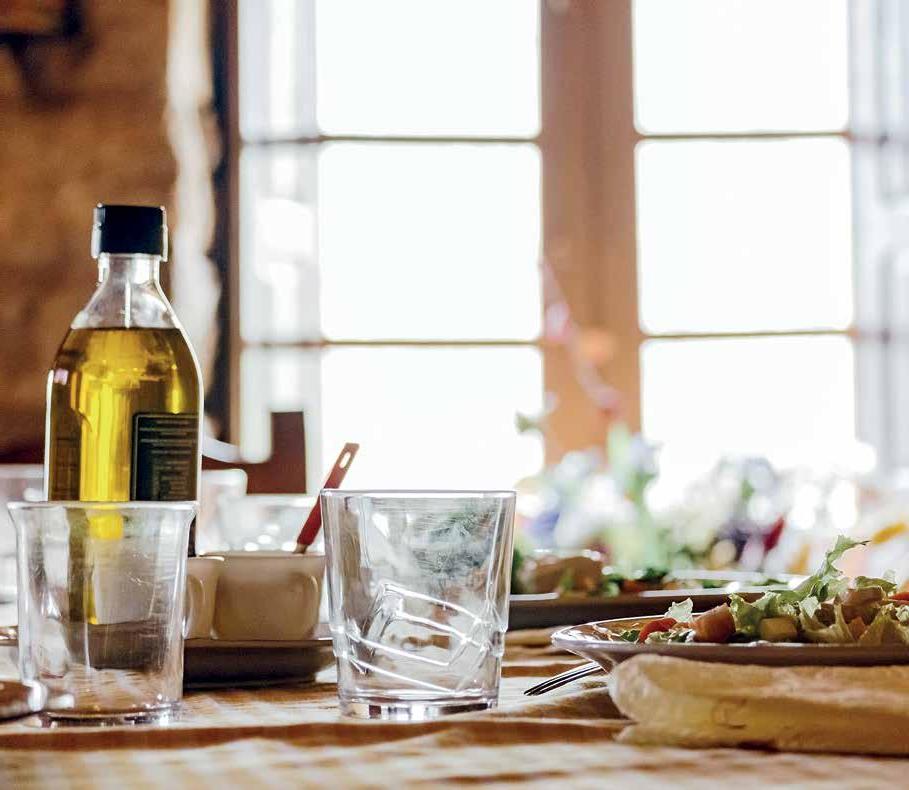
4 minute read
FOOD & BEVERAGE
HOME DINING THE NEW POST-PANDEMIC NORM?
With COVID-19 lockdown restrictions forcing many restaurants and food delivery businesses to close, dining in has become the new dining out. Simone Remba, consultant at Thomas Klein International, examines whether the home dining trend is here to stay.
If we contemplate what fad-worthy trends will make it onto the “Top Food and Beverage Trends to Watch in 2021” list, it doesn’t take a crystal ball to predict that most of these will stem from our 2020 post-pandemic behavior. Reminiscing about a pre-social distancing era, “Dinertainment” was the trend to watch in 2019 as we entered 2020. Defined as the crossroads where dinner and entertainment intersect, the concept was borne out of the widely held belief that a restaurant’s food alone is not enough to captivate diners. The evolution is about incorporating that key experiential factor to stand out from the competition.
The enforced lockdown period that we are experiencing globally has paved the way for the return of the most underappreciated restaurant we have all had the pleasure of visiting. The restaurant that does not require pre-booking or a dress code, with an infinite menu: the kitchen. With restaurant sections such as couchside dining and the famous balcony bar, lockdown has given birth to the successor trend of “Homentertainment,” replicating these dining experiences in the comfort of our own homes.
The notion of mandatory social distancing has indeed disrupted the balance of many diners who are value seekers. In this context, value is defined as unforgettable shared experiences with friends and family over a meal. Many people worldwide have been deprived of this social necessity, having to make do and create the best out of a bad situation.
For those who have used the mandatory downtime to kick-start a newfound approach to life, not only have their food choices and exercise habits improved, so too has their general mindset. We live in the ultimate digital age, oversharing our travels and experiences to gain envy from the masses. Lockdown has forced a reshift, with health, family and community replacing vanity. It is no longer about digitally flaunting the spoils of wealth because no matter who you are or what you have, we have all been relegated to our homes for our own safety and the wellbeing of others.
A rare, positive consequence of this pandemic has been the true significance of health and wellness. For many people, this has been the first global health care crisis they have experienced firsthand, highlighting the importance of healthy eating. Now, more than ever, consumers are more concerned about their well-being and the theory of treating their bodies as
an ecosystem. Regardless, a whole new level of scrutiny does come into play. With Millennials being dubbed “the most healthconscious generation,” the internet is awash with immune-boosting food and diet ads and promotions that can come across as exploitative of the current situation. We have witnessed the emergence of self-educated food know-it-alls who use the internet as a tool to preach about the superfoods you should or should not eat to heal and survive this pandemic.
Consumers have regained their appreciation for home cooking, refining their culinary skills not only for health reasons but also for cost saving and a source of distraction. Whether it is learning how to make the sourdough bread they serve at your weekend breakfast spot, or perfecting ravioli from scratch for your weekly cheat meal, we are striving to find ways to replicate those special experiences while we are stuck indoors.
Communications firm HUNTER conducted a US-based survey on the impact of COVID-19 on consumer food habits, reporting that:
• 54 percent and 46 percent of respondents are cooking and baking more respectively
• 35 percent of respondents are enjoying their own cooking more than ever
• 51 percent of respondents will continue to cook more often than before lockdown
This transition to more home-cooked meals has had a significant knock-on effect on other businesses and industries that have benefited from the closure of the restaurant industry. Although they are not new business models borne from the pandemic, concepts like home-delivered meal kits, online supermarkets and cooking gadgets (such as sous vide appliances or air fryers) have gained lucrative and viral momentum.
Digitally, food is connecting people like never before. From acclaimed MasterChefs to viral TikTok banana bread bakers, foodies are taking advantage of the internet’s infinite reach by creating and uploading more online content than ever before. With time on their hands, access to budgetfriendly gadgets and free instructional content, self-taught home chefs will only increase in number. All it takes is a passion for food and a Wi-Fi connection.
As restrictions slowly begin to lift and “normal” life resumes, the ultimate question is, will this newfound appreciation for our kitchens and well-being be short-lived? Are we going back to “normal” and what will the new “normal” look like? Will we unsubscribe from our kitchens and go back to gaining loyalty points from endless delivery applications? This all remains to be seen. thomaskleingroup.com










